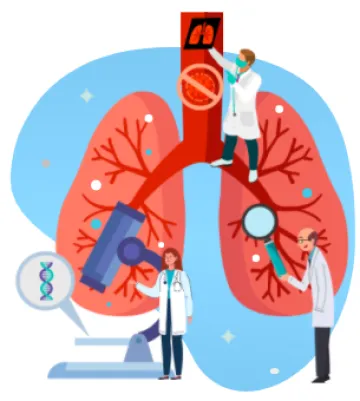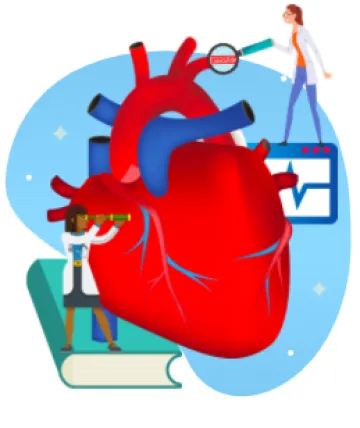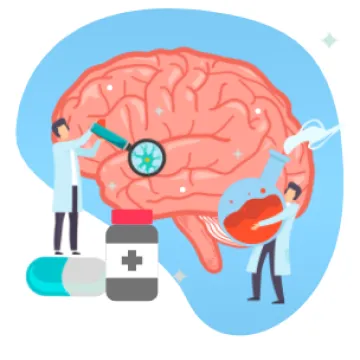What You Need to Know-Week of August 3rd
The most important weekly updates for you to keep your community healthy

In this Update:
1. Interview with an Expert: A Frontline Nurse’s Perspective
2. Take Caution During COVID-19: Possible long term effects
3. COVID-19 and Kids: Arizona School Reopening Updates
4. Information You Need: University of Arizona Expands Free Antibody Testing for Essential Workers
1. Interview with an Expert: A Frontline Nurse’s Perspective
Mel Mason, RN, has worked at Tucson Medical Center for about three years. She has frontline experience working with COVID-19 patients and we invited her to share her experiences and thoughts with us. Please note, Mel’s responses do not necessarily reflect those of Tucson Medical Center.
Q: What activities or practices, outside of the recommended safety guidelines, would you recommend to somebody who is trying to promote their own wellness and health?
It’s hard to make the safest choices for ourselves and others if we are falling apart at the seams. I recommend focusing on mental health. The world is on fire and it behooves us to stay connected to what makes us sane. Fasting from social media can be extremely useful. Using Zoom, FaceTime, or other video conferencing app and scheduling times to virtually hang out with friends and family can help us feel connected and have our feelings validated.
I’m also a proponent of a whole food, plant-based diet. I want to be as healthy as I can be to prevent becoming infected. The produce section at the grocery store is the best place to do this. I’d recommend people check out NeutritionFacts.org for advice on what to eat to stay healthy. Additionally, get some fresh air and move around.
Q: As a nurse, what is the message you want to give to Arizonans about COVID19?
I want people to stop doubting COVID-19 is real, I want them to listen to healthcare workers who deal with it on a daily basis, I want them to stop politicizing a health condition, and I want them to develop empathy for their fellow citizens. Wear masks, stop gathering with people, only go to the store when absolutely necessary, and turn your home into a place you’re interested in hanging out for a while. This will not be going away anytime soon, so we need to adapt to the situation and be respectful of one another. This is going to mean we are all inconvenienced to a degree; allow inconvenience to be a teacher rather than an enemy.
Q: What safety precautions are you taking when you leave the hospital to go home?
I remove my N95 and surgical masks and throw them away at work. I grab a clean surgical mask before heading out the door. I clean my eye protection (plastic glasses) with hydrogen peroxide and leave them in my locker. I have a bag where I place my hospital badge, pens, and trauma shears after wiping them down with hydrogen peroxide. The bag stays in my car. I take off my shoes in my garage. When I walk through the door, I drop my lunchbox on the counter, empty it, and wash the counter, followed by my hands. I immediately walk to the bathroom to take a shower. My scrubs and headband go into the wash afterward. (When I was working in the ER, I removed all of my clothes in the garage, placed them in a plastic garbage bag, and took nothing inside with me. I would run straight to the shower.)
Q: Do you have any one experience during COVID-19 while in the ER that you would feel comfortable sharing?
I was on what is referred to as the “B Team”–the team that suits up in their protective gear and waits to see if the A Team needs assistance–outside the room of a patient who was just intubated due to hypoxia from COVID-19. I was asked via walkie talkie to grab a bag of normal saline and enter the room, as the patient’s blood pressure was dropping from the sedation. I walked in, and the whole scene was surreal. It was one other nurse and myself, as the team who performed the intubation had left the room. I couldn’t hear much save for the hum of the oxygen source being pumped into my protective helmet. The patient was naked and covered with a clear, plastic sheet. His eyes were wide open, desperate-looking. I placed the bag of fluid inside the sleeve of a pressure bag, hung it on the IV pole, and repeatedly squeezed the pressure bag pump until the fluid was forced into his body at a high rate of speed. In 5 minutes his pressure was far less critical. I was suddenly very aware of my own breath sounds. I stared at his eyes, wondering who in the outside world was thinking about him. I wondered if he was even remotely aware of what was happening. I’ve worked with plenty of critical patients before, but the quality of this situation was more surreal, most likely because this disease isn’t cut and dry. No one knew what to expect moving forward. The mystery of it made me feel an overwhelming amount of sympathy for the patient and his loved ones. The patient was moved to the ICU shortly afterward, and I have no idea if he survived.
A further note about Mel:
After a couple years in the ER department, she transferred to the GI Lab in February 2020. Just two short months later, she was asked to return to the ER to help with the crisis. Right now, she is back in the GI Lab and feels that her risk of contracting the virus is lower than it was while working in the ER, although she still has to be extra cautious. Patients who are scheduled for an upper scope (endoscopy or bronchoscopy) do have to have a negative COVID-19 test result before their procedure, but the procedures Mel and her colleagues perform many times each day do involve exposure to respiratory fluids which may be carrying the virus. She also still sometimes has to return to the ER, a well as ICU and OR, to work on higher risk patients.
2. Take Caution During COVID-19: Possible long term effects
Scientists, researchers, and healthcare professionals are beginning to examine potential long term health complications that may be associated with COVID-19. Although much more research and time are needed to identify and understand the long term effects of COVID-19, there is growing evidence to suggest that the following systems may have long term effects as a result of a COVID-19 infection:
| Respiratory System | Cardiovascular System | Nervous System |
|
Composed of the lungs, nose, pharynx, trachea, and bronchi Image

|
Composed of the heart and blood vessels (veins, arteries, and capillaries) Image

|
Composed of the brain, spinal cord, and nerves Image

|
| In addition to the short term COVID-19 respiratory symptoms such as shortness of breath, acute respiratory distress syndrome, and increased susceptibility to other lung infections, there are likely to be lasting effects on the lungs. There have been reports of decreased lung capacity over time for some COVID-19 patients. Potential permanent scarring of the lungs has also been seen among those hospitalized for the virus. |
It is well known that inflammation and infections within the body can lead to cardiovascular complications, which may help to explain why COVID-19 patients are experiencing heart damage and cardiac issues. Blood clotting is being commonly reported for hospitalized COVID-19 patients. These clots can travel to other parts of the body including the lungs, or kidneys and can lead to health outcomes like stroke and embolisms. Heart damage is reportedly being found among COVID-19 cases including in the form of heart inflammation, failure, and scarring. A number of cases are showing damage that mimics injury caused by a heart attack. These issues may also increase one’s risk for cardiovascular problems in the future (e.g., heart attacks). |
Evidence about the neurological impacts of COVID-19 is growing. Studies are demonstrating that COVID-19 may be associated with neurological issues such as: Weakness Numbness Burning Headache Stroke Memory problems Confusion or delirium Lack of concentration Dizziness It is definitively associated with Loss of taste and smell, which for some lasts several months. |
| A study of 57 COVID-19 patients revealed that over half of the study population had abnormal CT (x-ray) scans, and over 75% had decreased lung capacity. | One study examined MRI’s for 100 recovered COVID-19 patients and found that 78 of them had experienced abnormal changes to their heart. | A recent study conducted on 19 patients who had passed away due to COVID-19 found that brain abnormalities (identified via MRI) occurred in 4 members of the cohort. |
There may be differences in the long term effects based on the severity of the COVID-19 case, although this variability needs to be studied further. Studies are also focusing on long term effects for the kidney and liver, and other organ systems.
University of Arizona faculty have launched a study to follow COVID-19 patients to better understand the long-term effects of the virus. For more information about the CoVHORT study, visit this link.
As medical professionals study future complications of COVID-19, it is important to watch for and monitor any unusual health issues you may be experiencing and to seek medical attention if these symptoms develop or progress.
3. COVID-19 and Kids: Arizona School Reopening Updates
Arizona school reopening decisions are still ongoing. On July 23rd, Governor Ducey released Executive Order 2020-51. The order states that:
- The Arizona Department of Health Services (ADHS) will release public health benchmarks by August 7, 2020, for school districts and charter schools to consider when determining school reopening dates for in-person learning.
- All school districts and charter schools must begin teacher-led distance learning by the first day of their traditional instructional calendar.
- All school districts and charters must develop policies to require face coverings for all staff and students over the age of 5. Exceptions include when students can physically distance or are outside on the playground and distanced. Students should also be allowed to take breaks from wearing their face coverings as long as the environment is safe to do so. Cloth face coverings should not be worn by anyone under the age of 2 or anyone who has trouble breathing or is incapcitated.
- Arizona public schools may pay employees during school closures if they occur and certain conditions are met.
- Schools are required to provide “free-onsite learning opportunities and support services” by August 17, 2020, for students who need a place to go during the school day. This may include student supervision or distance-learning support.
- An FAQ on the following executive orders: 2020-51, 2020-41, and 2020-44 is available here.
For information about each county’s governmental, COVID-19, and education responses, please use the links below:
Arizona Department of Education Website
4. Information You Need: University of Arizona Expands Free Antibody Testing for Essential Workers
n April, the University of Arizona launched their Antibody Testing Initiative, which provides free antibody testing for essential workers including healthcare care workers and first responders. Since the initiative’s launch, testing sites have been expanded and may now be found in all 15 Arizona counties in efforts to test 250,000 essential workers across the state. Registration is required and the specific testing site will be determined during the sign-up process.
For more information about the Antibody Testing Initiative and to see if you qualify for free antibody testing, please visit this link.
Essential workers included in this round of testing:
- Public Safety Officer
- Firefighter
- EMT
- Arizona Department of Corrections Officer
- Arizona Department of Juvenile Corrections Officer
- Arizona Department of Child Safety Employee
- Education Workers (pre-K – grade 20 teachers, faculty, adjunct faculty, cooperative extension specialists, graduate teaching assistants, administration, staff, and any other employees of an educational institution)
- Food Service Workers (grocery stores, agriculture, food preparation and service)
- Hospitality Workers (hotel, etc.)
- Public and Other Transportation Services (bus, taxi, Uber/Lyft, etc.)
- Solid Waste Collection Workers
- Warehouse and Delivery Workers
- Utilities (energy, water, waste water)
- Government and Community-Based Services
- Childcare Workers
- Group Homes, Day Programs, Disability Programs
- Information Technology Professionals
- Environmental Services, Facilities Management Workers
- Frontline Financial Workers (bank tellers, etc.)
- Journalists
- National Guard
The next update will cover more about contact tracing. If you would like to learn more about this and other topics related to COVID-19 in Arizona, please complete next week’s AZCOVIDTXT survey that you will receive via text in about a week.
